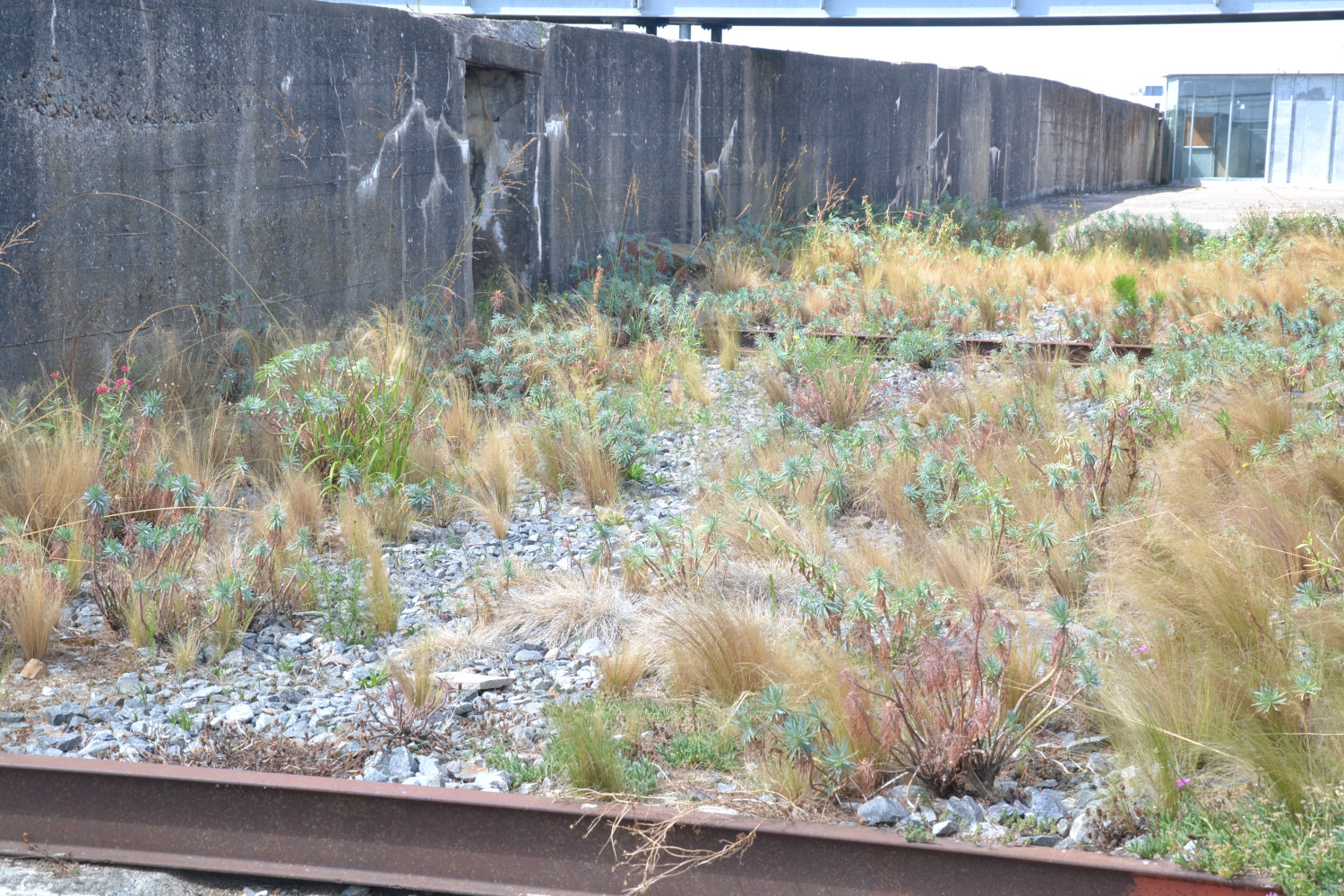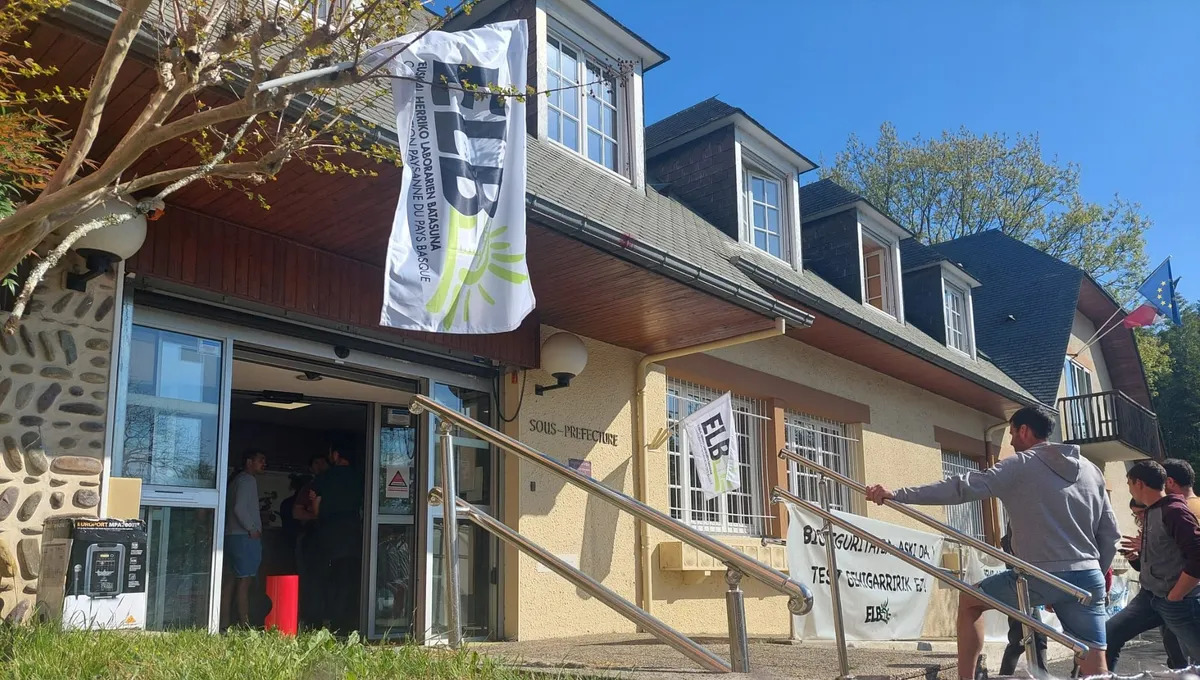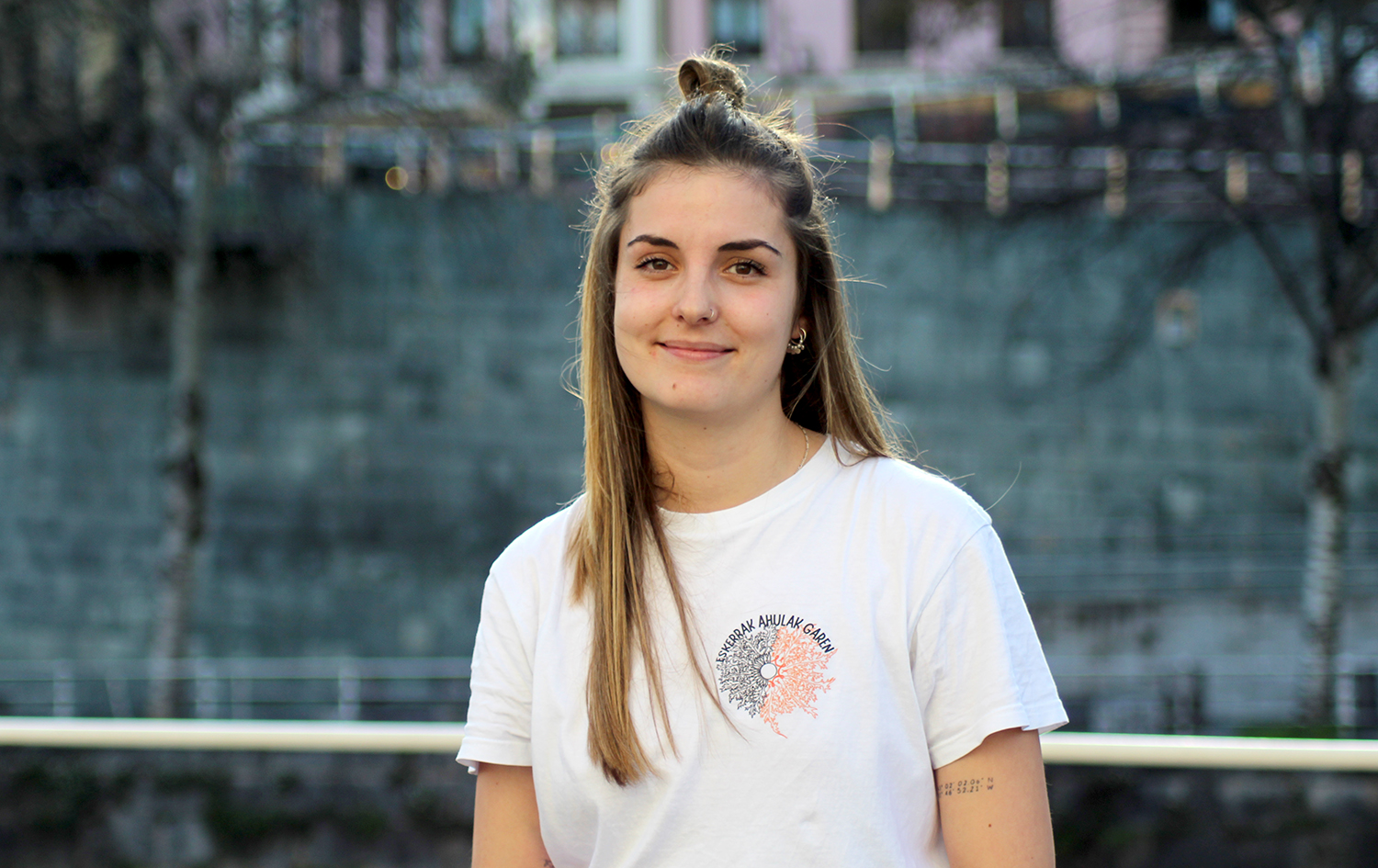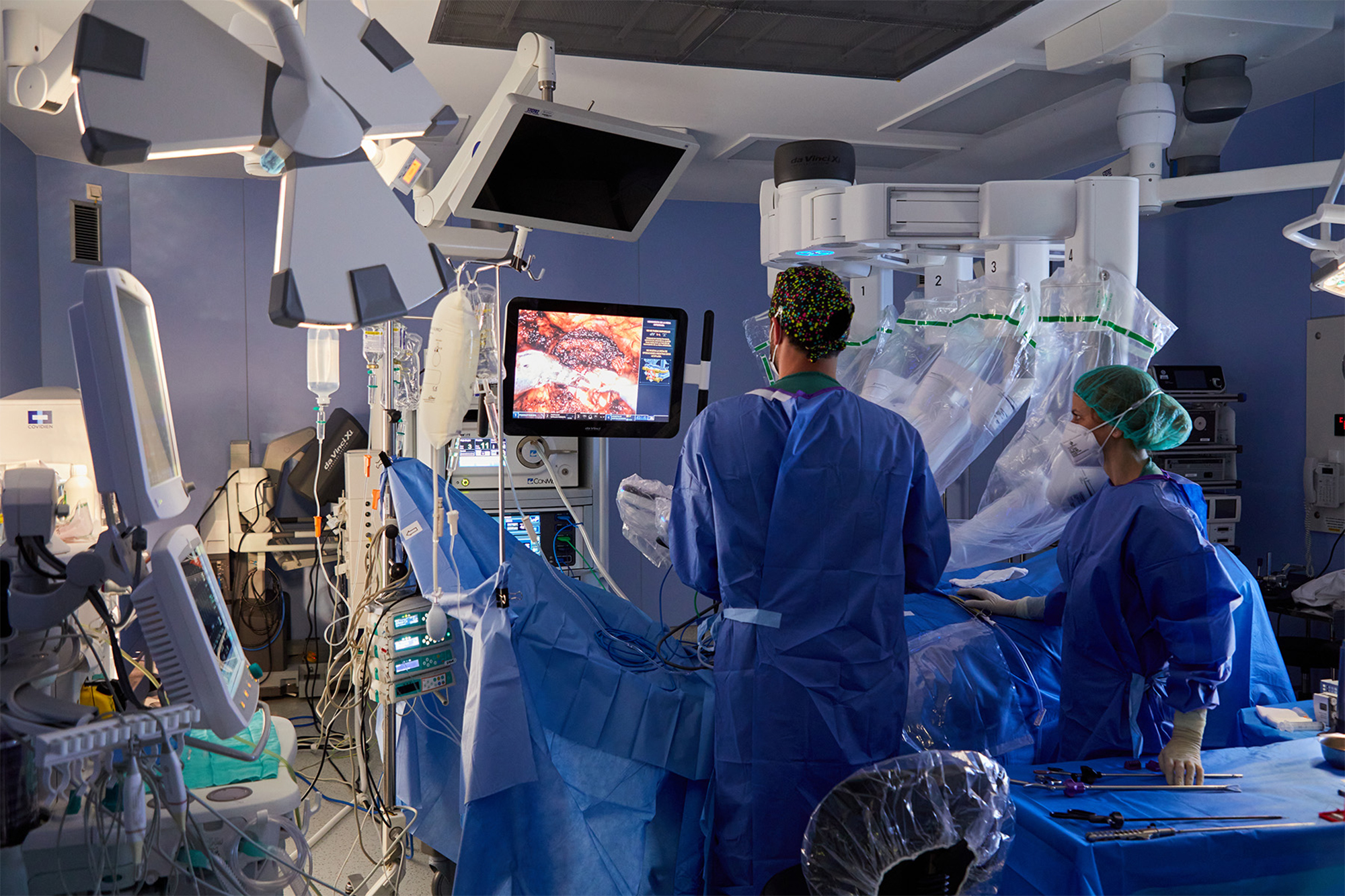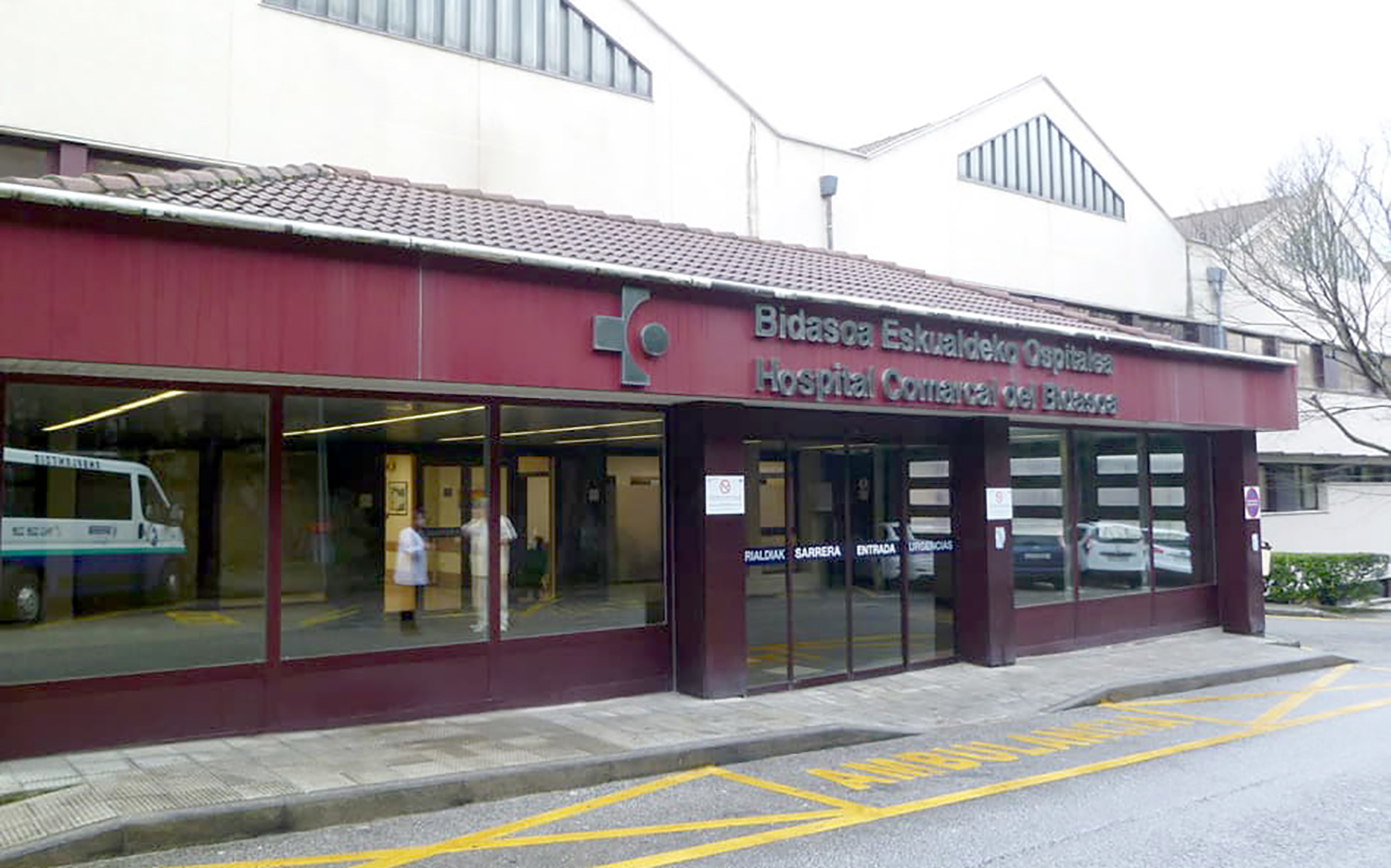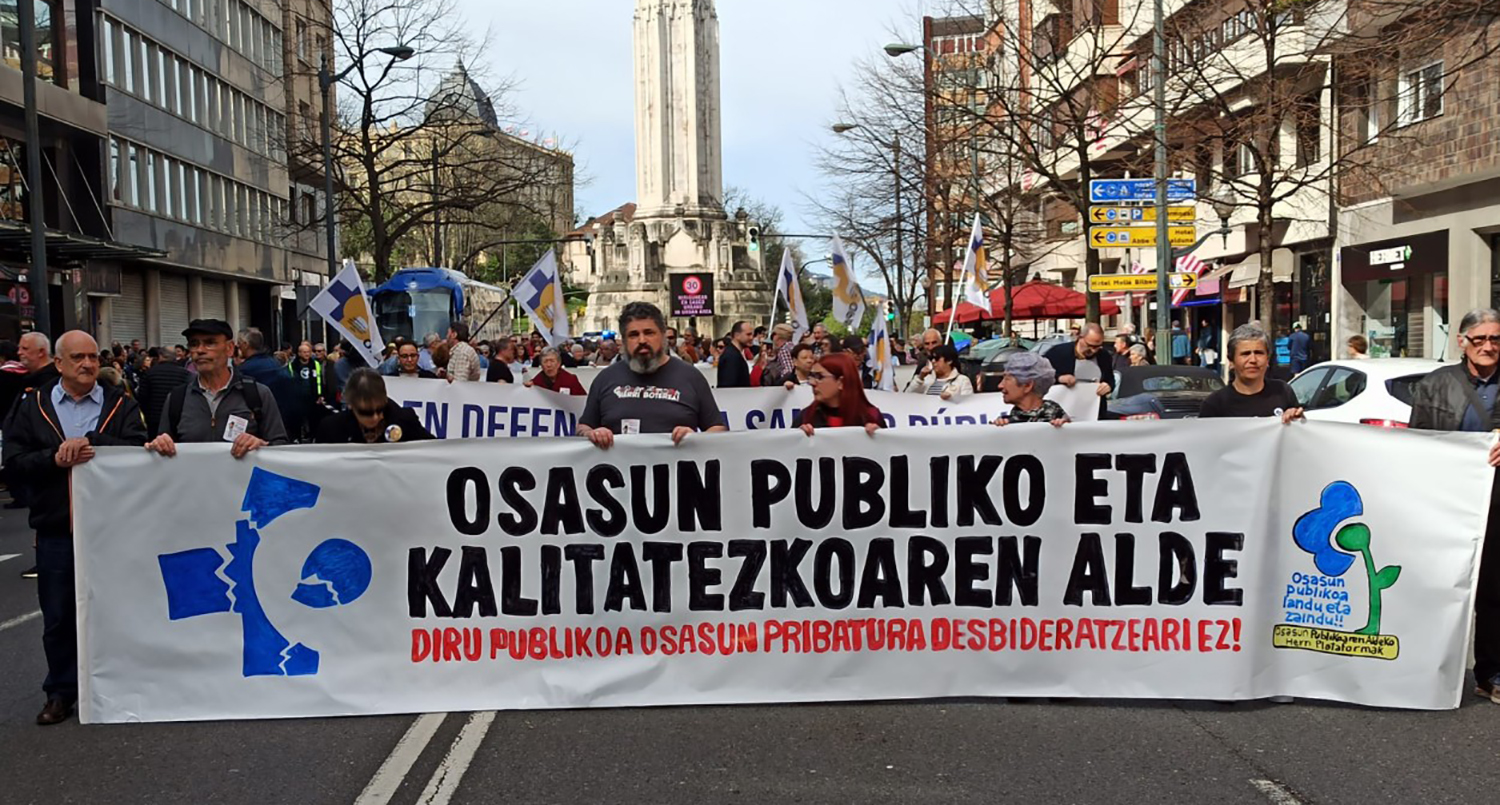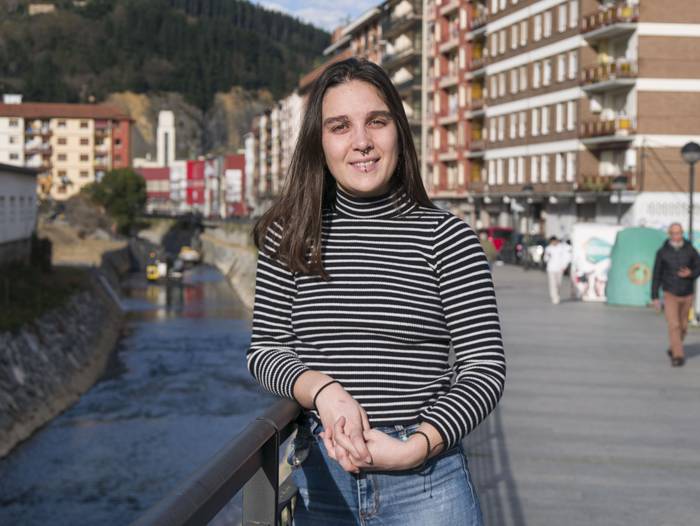"Those who manage healthcare always have the objective of reassuring the citizens"
- Bilbao 1951. Graduated in Medicine, he has been an inspector of health services for about 35 years. He has spent approximately the same time in the association for the right to health Osalde, of which he is one of its founders. Mario Fernández, who deals with occupational health and the environment, has been the second topic that has revolved around the issue. How sick is the environment?

Are we getting more and more sick?
I wouldn't say it clearly, but there are alarms. It is clear that there is increasing pollution: plastics, waste incineration – when what we are presented with as a solution is quite the opposite – many chemicals that did not exist in nature and that the human being has synthesized, many of them harmful and many others of unknown effects… “We are polluting the environment and that is going to make us sick”, someone responds, to reassure public opinion, that we are better than ever before. And it's true. At CAPV, there is one of Europe’s greatest expectations of half-life and we have a good health care system, but the ways of dying and getting sick are changing. Epidemiological studies say that cancer is the factor that takes more years of potential life away from us. It is said that the increase in cancer is a consequence of life for more years, but analyzing the data it is observed that the disease also has a high incidence in intermediate ages.
Is cancer a disease of civilization?
There's probably always been cancer. A tumor is nothing but a messy growth of cells. However, our immune system can detect cells that start to be harmful and fight them. The problem is that environmental pollution affects the immune system, I think it's one of the characteristics of this consumer and contagion society that we're creating.
You say that someone reassures us by telling us that we are better than ever. Who is that “someone”?
All health authorities, on one side or another. Those who manage public health services always have the objective of reassuring citizens. “Nothing happens,” “nothing shows up.” There was a time when tobacco was not proven to cause cancer.
The authors of tobacco knew it, long before the public...
Of course. But they tried to hide to continue the business. Sometimes because of ignorance, sometimes because of bad will, it says “everything goes well.” And people have the right to know.
In search of answers that many citizens are looking at science. But scientists don't always match, some say one thing and others say the opposite.
I do not want to talk badly about anyone, but there are great economic interests in terms of scientific innovations, medicines, chemicals, etc. Let us not say anything about GMOs and pesticides. And those interests hide what I'm saying, cause not enough research to be done.
Do I have to call him a magufo and conspirator? And being a doctor as well!
(Laughter) Yeah, all that. A doctor can say these things, and other doctors will say the opposite. I have discussed GMOs, synthetic chemicals, Zabalgarbi incinerator, etc. Unfortunately, there is little discussion.
You mentioned GMOs. Do you think they can harm your health?
He is still researching the subject, and it will always have to be investigated, if we said that we already know all its effects we would be playing with superiority; well, some already do. The topic has been little researched, since companies working with GMOs have prevented them from carrying out studies with their products.
I read everywhere the phrase “GMOs are proven to be harmless”.
It's not proven, far from it. It is said that “for many years in some countries they have been planted and sold and have not been proven to have any harmful effects, do not frighten people in vain.” It has not been proven because it has not been wanted to investigate and yet some damages are already known: the emergence of super-resistant plants, the damage to bees… We have been with this for a few years, it takes time to see the evolution. But we've started playing with fire. That is why we are opposed to the principle of prudence being applied. In addition, GMOs only contribute to the enrichment of some multinationals. In the world, you don't need GM food to alleviate hunger; there's enough food, the problem is distribution.
What do most doctors think of these things that you're saying?
Unfortunately, there are no environmental or occupational health issues taught in medical and nursing schools. The curricula are very old and there is a lack of knowledge of both the doctors of my generation and the young. The environment is abandoned.
What I have read in many places is that the environment is not a problem. There are diseases that rise, not only because we live longer, but because we don't take proper care of ourselves.
To say that is offensive, to blame the victim. He has the responsibility of what happens to him because he smokes, because he does not exercise, he eats too much fat… The environment is not considered a factor. However, to put it all, social organization means that many people do not take care of themselves. It is clear that the poorest people do not have the ability to organize a healthier life, often the only thing that concerns them is to survive every day.
So is the crisis another factor affecting health?
No doubt. At the moment it is decisive. I'm going to give you a brutal example. When the Soviet Union disappeared there was a serious socio-economic crisis, poverty and social inequalities worsened, with them alcoholism, the number of suicides and others. Life expectancy had decreased a lot in a short period of time. In Finland, however, there was also an economic crisis, as exports to the Soviet Union were part of the region ' s economy. However, this crisis was softened by the fact that the Finnish Government promoted healthy habits among the population and strengthened the health system. Public health and social services play a very important role in times of crisis. When society is deteriorating, moreover, we take away that protection… Imagine what this would be like with the U.S. health care system.
“1981ean Kubara joan ginen zenbait kide, OMEren eskutik master bat egitera, eta hango osasungintzaz asko ikasi genuen. Osasun sistema eraldatzeko premia sumatu genuen, ordura arte bi orduan 60 gaixo ozta-ozta ikusi eta errezetak ematen zituzten medikuak baitziren sistemaren ardatza. Kuban ikasitakotik planteatu zen gaixoaren historia eduki beharra, osasun-zentroetan langile guztiak koordinatuta aritzeko beharra... Zorionez eredu hori da orain Espainiako Estatuan indarrean duguna”.
Indartsua, irribarretsua eta oso langilea. Helburu pila bat ditu esku artean, eta ideia bat okurritzen zaionean buru-belarri aritzen da horretan. Horiek dira Ainhoa Jungitu (Urduña, Bizkaia, 1998) deskribatzen duten zenbait ezaugarri. 2023an esklerosi anizkoitza... [+]
Pazienteek Donostiara joan behar dute arreta jasotzeko. Osasun Bidasoa plataforma herritarrak salatu du itxierak “are gehiago hondatuko” duela eskualdeko osasun publikoa.
EAEn BAMEa (famili medikuen formazioa) lau urtetik hiru urtetara jaistea eskatu du Jaurlaritzak. Osakidetzaren "larritasunaren" erantzukizuna Ministerioari bota dio Jaurlaritzako Osasun sailburu Alberto Martinezek: "Ez digute egiten uzten, eta haiek ez dute ezer... [+]
Sare sozialen kontra hitz egitea ondo dago, beno, nire inguruan ondo ikusia bezala dago sare sozialek dakartzaten kalteez eta txarkeriez aritzea; progre gelditzen da bat horrela jardunda, baina gaur alde hitz egin nahi dut. Ez ni optimista digitala nauzuelako, baizik eta sare... [+]
Berrogei urte dira Euskal Herrian autismoaren inguruko lehen azterketak eta zerbitzuak hasi zirela. Urte hauetan asko aldatu da autismoaz dakiguna. Uste baino heterogeneoagoa da. Uste baino ohikoagoa. Normalagoa.
Itxaron zerrendak gutxitzeko Osasunbideak hartutako estrategiak gaitzetsi ditu Plataformak
Endometriosiaren Nazioarteko Eguna izan zen, martxoak 14a. AINTZANE CUADRA MARIGORTAri (Amurrio, 1995) gaixotasun hori diagnostikatu zioten urtarrilean, lehen sintomak duela lau urte nabaritzen hasi zen arren. Gaitz horri ikusgarritasuna ematearen beharraz mintzatu da.











